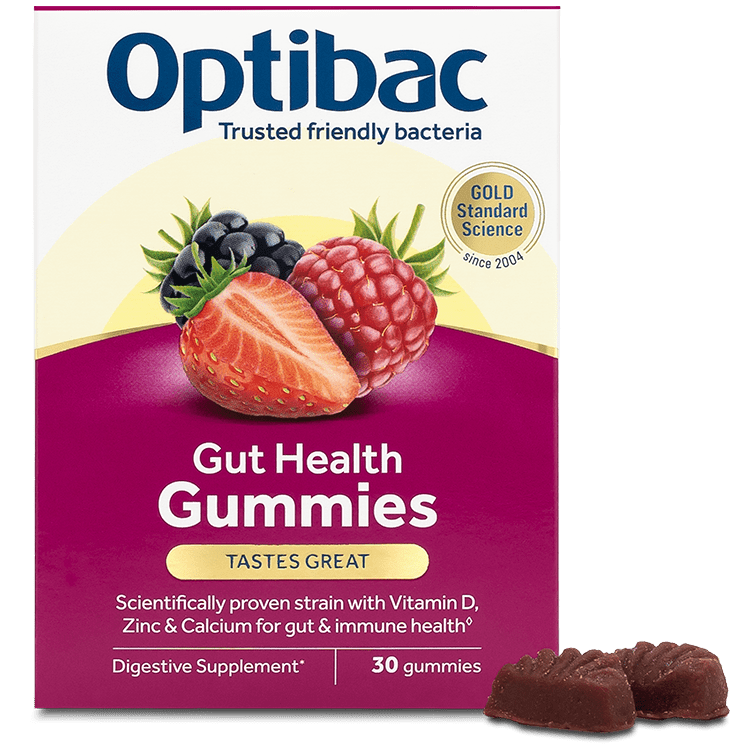gut balancing supplement FAQs: Everything Beginners Need to Know
Discovering the Causes and Effects of Digestive Tract Issues and the Role of Digestive Tract Health Supplement
Intestine health and wellness is a vital facet of general wellness. Poor nutritional choices, stress and anxiety, and imbalances in intestine bacteria can cause various gastrointestinal problems. Signs such as bloating, diarrhea, and stomach pain typically indicate deeper wellness issues. Understanding these causes and the potential role of digestive tract health and wellness supplements may offer important understandings. What strategies can be utilized to recover equilibrium and improve digestive tract feature? The solutions may hinge on the following steps.
Recognizing the Gut Microbiome
The gut microbiome, a complicated ecological community of trillions of microorganisms staying in the gastrointestinal tract, plays an essential role in general wellness. This varied community contains bacteria, infections, fungi, and various other germs that connect symbiotically with the human host. They help in the digestion of food, the synthesis of vitamins, and the guideline of metabolism. The gut microbiome significantly influences the immune system, helping to protect versus pathogens and keep a well balanced inflammatory action. Research shows that a healthy and balanced microbiome is essential for psychological health, with gut-brain communications affecting state of mind and habits. Variables such as diet regimen, way of life, and environmental direct exposures can form the structure of the microbiome, highlighting the significance of maintaining a well balanced diet plan rich in fiber and probiotics. Understanding this detailed ecological community offers insights right into exactly how gut wellness can affect general physical and mental health, highlighting its value in health administration.
Typical Reasons For Digestion Issues
Although many variables can add to gastrointestinal issues, specific typical causes frequently interfere with gut wellness. Poor dietary options, such as high sugar and refined food consumption, can cause inequalities in digestive tract microorganisms. Additionally, poor fiber intake can prevent digestion and advertise irregularity. Anxiety is an additional considerable variable, as it can alter gut function and aggravate status quo. Furthermore, absence of physical task may reduce the digestive system, triggering pain and bloating.
Infections, including bacterial, viral, or parasitic agents, can additionally cause intestinal disturbances. Food intolerances and allergic reactions, specifically to gluten and lactose, frequently result in digestive pain. Finally, the abuse of prescription antibiotics can interrupt the all-natural microbiome, resulting in additional issues. Recognizing these usual reasons is vital for individuals seeking to improve their intestine health and wellness and overall health.
Identifying Signs of Gut Issues
Identifying signs and symptoms of intestine issues can be necessary for timely intervention and improved wellness. Individuals experiencing gastrointestinal pain ought to recognize several usual signs that suggest underlying problems. Signs and symptoms might consist of bloating, gas, looseness of the bowels, bowel irregularity, and abdominal discomfort. These manifestations can vary in strength and frequency, often showing the seriousness of the gut issue. In addition, some people may see unplanned weight management, exhaustion, or changes in hunger, which might signify an extra severe problem. Skin problems, such as rashes or acne, may also arise, linking intestine health and wellness to overall health. Importantly, consistent signs and symptoms should not be disregarded, as very early acknowledgment can assist in reliable treatment and protect against additional complications. A detailed understanding of one's physical signals is vital, making it possible for people to seek medical advice when needed and possibly bring about far better wellness results via suitable treatments.
The Influence of Diet Regimen on Intestine Health
Diet plays a vital role in determining intestine wellness, influencing both microbial balance and gastrointestinal effectiveness. Nutrient-rich foods can promote a healthy and balanced gut setting, while refined foods might bring about imbalances and digestive problems. Recognizing these dietary impacts is vital for preserving general intestine health and wellness.
Nutrient-Rich Foods
While numerous aspects influence gut health, the duty of nutrient-rich foods can not be overemphasized. A diet plentiful in whole foods, such as fruits, vegetables, whole grains, lean healthy proteins, and healthy and balanced fats, adds greatly to maintaining a balanced gut microbiome. These foods provide important vitamins, minerals, and antioxidants that sustain digestive wellness and lower swelling. Fiber-rich choices, especially, promote routine bowel motions and nourish helpful digestive tract germs, enhancing general gut feature. Probiotic-rich foods like yogurt and fermented vegetables even more support intestine plants, helping food digestion. Including a range of nutrient-dense foods not only cultivates a healthy and balanced digestive tract atmosphere but additionally enhances the body immune system, adding to overall health. Prioritizing these foods can bring about enhanced gut health and avoid potential concerns.
Processed Food Impacts
The consumption of refined foods can significantly threaten intestine health and wellness, counteracting the benefits of nutrient-rich choices. These foods are frequently high in ingredients, preservatives, and sugars, which can disrupt the equilibrium of gut microbiota. A diet abundant in refined products often tends to do not have important nutrients, bring about shortages that compromise gastrointestinal feature. Additionally, extreme sugar and undesirable fats can promote swelling and contribute to problems like irritable bowel disorder (IBS) and dripping intestine disorder (supplement for bloating). This discrepancy may lead to signs and symptoms hop over to here such as gas, discomfort, and bloating. Additionally, the low fiber content in processed foods lessens gastrointestinal health and wellness by restricting the growth of valuable germs. Ultimately, a change in the direction of whole, unrefined foods is crucial for preserving optimal intestine feature and total wellness
Exactly How Stress Affects Digestion
Stress significantly affects digestion by triggering a cascade of physical feedbacks that can interfere with normal intestinal feature. When a private experiences stress and anxiety, the body enters a fight-or-flight setting, releasing hormonal agents such as cortisol and adrenaline. These hormonal agents can slow down food digestion by reducing blood circulation to the digestive system organs, causing signs such as irregular bowel movements, bloating, or diarrhea.
Furthermore, stress can modify the gut microbiome, adversely affecting the balance of valuable bacteria. This discrepancy can aggravate existing gut concerns or develop new ones. Furthermore, stress and anxiety typically causes harmful consuming routines, such as overeating or consuming processed foods, which can better compromise digestive system health.
Psychological factors, such as stress and anxiety and anxiety, can likewise add to gastrointestinal discomfort, producing a comments loop that bolsters gut issues. Understanding the complex connection between anxiety and food digestion is necessary for maintaining total intestine wellness.
The Function of Digestive Tract Health And Wellness Supplements
Intestine health and wellness supplements play a substantial function in improving digestion feature and total health. Secret active ingredients, such as probiotics and prebiotics, are necessary for preserving a balanced intestine microbiome. Recognizing the advantages and parts of these supplements can assist people in making educated options for their gastrointestinal health.
Benefits of Intestine Supplements
A flourishing gastrointestinal system is vital for overall health and wellness, and intestine health supplements can play a significant role in achieving this equilibrium. These supplements see this here frequently contain probiotics, prebiotics, and different nutrients that support gastrointestinal feature and promote a healthy and balanced digestive tract microbiome. By boosting the growth of useful bacteria, they can boost food digestion, minimize bloating, and ease pain connected with intestinal issues. In addition, gut supplements may strengthen the intestine obstacle, possibly lessening the threat of food level of sensitivities and inflammatory problems. Regular use can additionally add to boosted nutrient absorption, energy levels, and also mental wellness, as gut health is very closely linked to mood guideline. Ultimately, incorporating digestive tract wellness supplements can be a strategic strategy to maintaining digestive system consistency and overall wellness.

Trick Components to Think About
When selecting gut health and wellness supplements, recognizing the key components is essential for optimizing their advantages. Probiotics, specifically Lactobacillus and Bifidobacterium strains, are important as they help restore a balanced digestive tract microbiome. Prebiotics, such as inulin and fructooligosaccharides, work as food for these advantageous microorganisms, advertising their development. wikipedia reference Digestion enzymes, including amylase and protease, help in breaking down food, improving nutrient absorption. In addition, fiber resources like psyllium husk assistance normal bowel activities and overall intestine health and wellness. Various other helpful ingredients may consist of L-glutamine, which aids in fixing intestine cellular lining, and zinc, recognized for its immune-supporting homes. Selecting supplements with these vital components can considerably improve digestive tract health and total well-being.
Tips for Maintaining a Healthy Intestine
Keeping a healthy and balanced digestive tract is essential for total wellness, as it plays a crucial function in immunity, nutrient, and digestion absorption. To support gut wellness, people should prioritize a balanced diet abundant in fiber from fruits, veggies, and whole grains. These foods promote advantageous germs in the digestive tract. Additionally, integrating fermented foods such as kefir, yogurt, and sauerkraut can boost digestive tract flora diversity. Staying moisturized is likewise crucial, as enough water intake help digestion and nutrient transportation.
Regular physical task adds to gut health by promoting efficient digestion and decreasing tension, which can adversely affect digestive tract feature. Taking care of anxiety via mindfulness techniques like reflection or yoga can additionally support gut health. Lastly, avoiding too much use prescription antibiotics and restricting processed foods, sugars, and harmful fats can cultivate a balanced digestive tract setting. By taking on these techniques, people can substantially enhance their gut health and general health.
Regularly Asked Questions

Can Digestive Tract Wellness Influence Mental Wellness and Mood Stability?
Research study suggests a substantial link between digestive tract health and wellness and psychological well-being. The gut microbiome can influence mood stability and mental health, suggesting that maintaining a healthy gut might add favorably to emotional durability and cognitive function.
Are There Specific Foods to Stay Clear Of for Better Gut Wellness?
Certain foods can negatively influence gut health, consisting of processed sugars, artificial sugar, and high-fat dairy items. Decreasing these things may enhance digestive feature and advertise a healthier digestive tract microbiome, resulting in overall much better wellness.
Exactly how Lengthy Does It Consider Gut Health And Wellness Supplements to Program Effects?
The period for digestive tract wellness supplements to show effects varies amongst people. Commonly, recognizable modifications might occur within a couple of weeks, however some individuals might need several months for suitable outcomes, depending upon their distinct wellness conditions.
Can Kid Experience Digestive Tract Issues Comparable to Adults?

Youngsters can experience digestive tract problems similar to grownups, consisting of discomfort, bloating, and irregular defecation (supplement for bloating). Elements such as diet regimen, stress and anxiety, and infections might add to these issues, making recognition and management essential for their health and wellness
What Are the Long-Term Results of Unattended Intestine Troubles?

Fiber-rich choices, especially, advertise normal digestive tract movements and nourish beneficial gut germs, enhancing overall digestive tract function. A flourishing gastrointestinal system is important for overall health, and gut health supplements can play a substantial duty in achieving this equilibrium. In addition, digestive tract supplements might enhance the digestive tract barrier, potentially lessening the threat of food level of sensitivities and inflammatory problems (supplement for bloating). Routine physical task adds to gut wellness by promoting efficient food digestion and minimizing stress and anxiety, which can detrimentally influence intestine feature. Particular foods can adversely impact digestive tract wellness, including processed sugars, synthetic sweeteners, and high-fat milk items